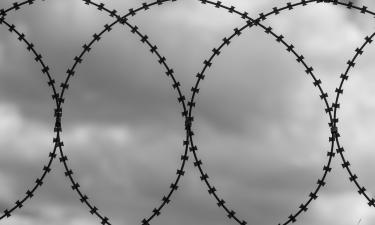Problems of the Russian Family Today
 Someone once said long ago, there is no such thing as a marriage made in heaven. Today thousands of young Russians would agree with this statement, as the institution of marriage is losing popularity.
Someone once said long ago, there is no such thing as a marriage made in heaven. Today thousands of young Russians would agree with this statement, as the institution of marriage is losing popularity.
In the opinion of Alexander Sinelnikov, a well-known Russian sociologist, "the crisis in the family is connected with the moral crisis. It can be seen in the increasingly popular ideals of individualism and egoism in Russian society." At present, Russia is reaping the fruit of the "second demographic revolution" which came to this country from Europe, a decade too late, at the start of the 1990s. Last year's nation-wide census shows that out of the 34 million couples, 3 million are common-law marriages.
One reason for young people's unwillingness to get married officially is the fact that social ties are easily broken today: there are about 770,000 divorces a year in Russia, and their number is increasing at an annual rate of 20%. "The logic is simple: why register the marriage if you suddenly want to divorce later?" Alexander Sinelnikov explains. "Besides, the divorce leads to alimony payments and a partial loss of housing and some other property," he adds.
"The media also plays its role in this matter," says Viktor Medkov, senior lecturer at Moscow State University's sociology faculty. "Recently, Fyokla Tolstaya, a popular TV hostess and Leo Tolstoy's grand-grand-daughter, said that nobody needs marriage nowadays. Many young people catch this idea." Ideas about the self-sufficiency of men and women and the family as an outdated social institution are often heard on various TV chat shows devoted to family matters. Glossy magazines publish numerous stories about unhappy family life. High-profile divorces and scandalous love affairs add up to the popularity of pop and movie stars, as well as politicians.
In Alexander Sinelnikov's opinion, there is no close interdependence between the economic hardships Russians experienced in the 1990s, and continue to experience today, and the changes occurring in the family. However, some academics do not agree.
Specialists from the Centre of Demography and Ecology of Man claim that, compared to 1993, the average age for men to get married has grown by 1.6 years, to 27.8 years of age (for first marriages by 1.4 years, to 25.5). For women, this indicator has increased by 1.4 years, to 25.3 years of age (for first marriages by 1.1 years, to 22.8 years of age). Experts explain that, when getting married for the first time, women prefer to choose husbands with a stable economic status. Obviously, they do not like the change of family roles that were so typical of the 1990s, when women, who find it easier to adapt to new economic realities, often became the main breadwinners.
It is for purely economic reasons that "Russian families are orientated to the birth of only one child today ", says Natalya Rimashevskaya, corresponding member of the Russian Academy of Sciences, director of the institute of socio-economic problems of the population. The level of incomes of a considerable portion of Russian families prompts them to opt for better living standards rather another child. The thing is, Natalia Rimashevskaya says, the economic reforms in Russia have resulted in the "polarisation of the population's living standards, incomes, properties and housing conditions. The incomes of the country's wealthiest 5% are 50 times and more higher than those of the poorest sections of the population." This situation could not but tell on demography, she stresses. "The number of the newborns has dropped twofold over the past 15 years, to 1.4 million last year. The birth coefficient per woman is just 1.25 now, whereas it should be no less than 2.15 just for the sake of [the population's] mere reproduction." Nowadays, marriage is no longer a necessary condition for giving birth to a child and bringing him/her up. "Today, about 30% of all babies in this country are born to couples who are not officially married", says Vladimir Sokolin, chairman of the State Statistics Committee. In terms of the number of children born out of wedlock, Russia is on a par with the United States, Canada and Australia. France, Britain and Sweden have outpaced Russia (with 40, 40 and 50%, respectively). "My son won't suffer from a lack of love," says Tatyana K., a 30-year-old economist, who is unmarried but is about to give birth. "Besides, I earn enough", she adds.
According to sociologists' data, 88% of Russians believe that the state should actively stimulate birth rates in the country, while 40% of Russians think that it should help strengthen the family. The government understands how pressing these problems are. Many regions already use such stimulating practices. The law "On Youth" will soon take effect in Moscow providing for payments to young families for the birth of children. The payment will equal 15,000 rubles for the birth of the first child (about 30 rubles equal 1 US dollar), 21,000 rubles for the second child, and 30,000 rubles for the third. Young families will obtain housing on easier terms. There are federal and regional programmes for material assistance to motherhood and childhood, including the "Healthy Child" programme. This promotes childbirth to a certain extent: 22 regions have registered the birth rate exceeding the death rate. In some of these regions, Russians make up the majority of the population. Accordingly, it would be wrong to say that population growth is registered only where the Muslim population, with traditionally high birth rates, prevails.
Olga Sobolevskaya, RIAN
Subscribe to Pravda.Ru Telegram channel, Facebook, RSS!




